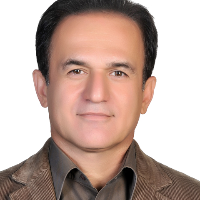Evaluating and Comparing the Sensitivity of NSFWQI and IRWQISC Models to Water Quality Parameters
Author(s):
Article Type:
Research/Original Article (دارای رتبه معتبر)
Abstract:
In this paper, using variance based methods, the sensitivity analysis of the two well recognized water quality indices, namely NSFWQI and IRWQISC, is presented in a comparative approach. The research was conducted by employing monthly sampling at thirteen stations on Pasikhan River during 2015. Sensitivity analysis of the two models’ parametres could lead to recognize the most important ones for their better measurement and also to evaluatie the correctness of the parametrs’ weights used in the Iranianian model. In the seasonal analysis, BOD was determined as the most sensitive parameter for both indices. In spatial analysis, NSFWQI classified the river water quality as “Good” and “Bad” in upstream and downstream Pasikhan River, respectively. Using Factor prioritization approach, it was found that DO was the most effective parameter in NSFWQI, for which applying the approach minimized the uncertainty of the model output. In IRWQISC, Do at U/S stations and BOD at D/S stations were the most influencing parameters on the model output variance, which emphasized the importance of the frequency and precision of sampling of these two factors against the other nine employed factors . Another important achievement of the present research was revealing the inconsistency of the weights used in IRWQISC, with respect to the parameters’ sensitivity and their influence on the model output in Pasikhan River.
Keywords:
Language:
Persian
Published:
Iran Water Resources Research, Volume:14 Issue: 5, 2019
Pages:
109 to 124
https://www.magiran.com/p1951976
سامانه نویسندگان
مقالات دیگری از این نویسنده (گان)
-
Developing an Urban Flood Loss Functions for Residential Buildings (Case Study: Rasht City)
Dorenaz Kabirsamadi, *, Hadi Modabberi
Iran Water Resources Research, -
Investigating Changes in the Intensity of Short-Term Rainfall in the Last Half Century in the Context of Data Scarcity (Case Study: Rasht City)
Mehdi Torabi, *
Journal of Water and Soil Resources Conservation,



